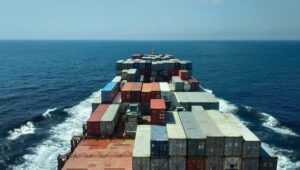Minister of Foreign Affairs agrees: questionnaire is “unacceptable”
Portugal’s caretaker government has finally reacted to some of the letters being sent out by the US government to European entities, questioning gender ideology, climate policies and “malign influences from China”, among others.
Still keeping quiet about the letters received to suppliers of the US embassy in Lisbon, and Lajes Air Force Base, Mr Rangel praised the reaction of university deans, who point blank refused to answer any of the US government’s questions.
“We very much welcome the position of Portuguese universities”, he told reporters today, adding that the Portuguese government could never carry out such an inquiry because it is contrary to the Constitution”.
As to why it has taken the government so long to make any kind of comment about these unorthodox missives from the Trump administration, Mr Rangel was not quite so forthcoming.
He said say nonetheless, that “the US will have to understand, and they will, because they too are very zealous about their Constitution.
“If the Portuguese government can’t ask questions like this of a university, in order to condition any support for a certain public policy, neither can the administration of a foreign state.
“Now, the US can give aid or not give aid to whomever it wants”, he added, referring to the American Corner programme for which support is being withdrawn, seemingly across Europe. “We can’t interfere with that,” he clarified.
Already, the governments of France and Belgium have denounced what is widely seen as the Trump administration “trying to condition European colleges, with questionnaires and the withdrawal of support”.
Lusa’s report today gives a little more information on the content of the intrusive questionnaire. It apparently included questions such as “whether (the universities) received funding from the People’s Republic of China, including the Confucius Institutes, Russia, Cuba and/ or Iran”.
But as to the dilemma facing Portuguese companies supplying US government offices and infrastructure in Portugal, there has been barely a peep. ND
Source material: Lusa/ noticiasaominuto




















